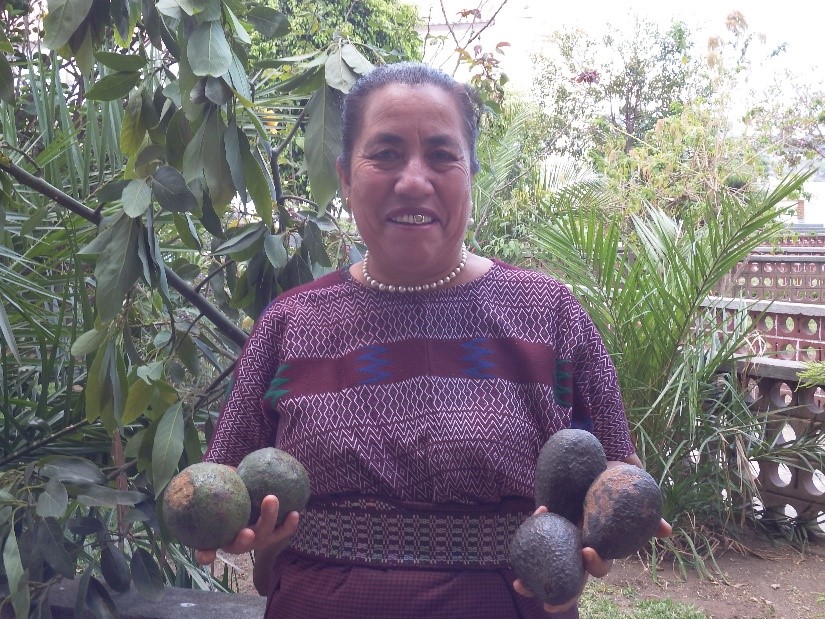
Moving from annual to tree crops – avocado farmers adapting and learning
On 5 May 2018, the Association for Integrated Development of the Altiplano became formally established, and avocado farmers celebrated. “Today, we are so happy to have consolidated our consortium of eight producer associations from different municipalities in Sololá” explains Don Andrés, community leader and lifelong farmer. “Farmers from San Andrés Semetabaj and other communities around Lake Atitlán began to talk about growing a new variety of avocado some time ago. But since CDAIS came, so many things have changed. They helped us come together, like a large family of growers now working in partnership for our common good.”
Before, farmers in the area grew only or mainly maize and beans. But in 2005, people were told that a new variety of avocado could produce well here, and that could earn them money. However, as Don Andrés describes, “This was unknown to us, and the more we explored what we needed and the demands of the market, the more our doubts increased and the less willing we became.” Another association board member, Ampara García Estrada, added that for her it was difficult at first to understand the benefits of growing avocado, and not sowing maize and beans as they had done all their lives. “But the first harvest was fruitful” she said.

“CDAIS motivated us through training and taught us to work together. The greatest achievement is that we stopped competing unfairly among ourselves, and farmers from different municipalities got together in this new common space.” Ampara García, avocado producer and AIDA board member, San Andrés Semetabaj
Transition, like trees, takes time to produce fruit
“Growing traditional crops feeds our families every year, but the market is saturated and we can’t make money from selling maize and beans. Instead, avocado may take longer to grow, but the profits are much better, and that makes it a crop for the future.” So says Mario Chavez, also known as ‘the professor’ by those around him. But he also explains the ‘critical period’ in the process of moving to avocado production, when families may not have enough maize and beans to eat, before they start earning money from fruit sales to buy food. “Though those of us who have been involved in this have realized that we can now save and also have access to things that were previously unthinkable for us.”
Manolo Jeréz, far from rushing to start cultivating avocado, was about to sell land that he was not farming. But in the absence of any good offers, he decided to grow avocado. “In the past two years I have seen failure and success, but I have also learnt a lot. Though it took time for me and my family to understand that gains were not going to be immediate, and on the contrary, that there would be hard times that we had to pass.”
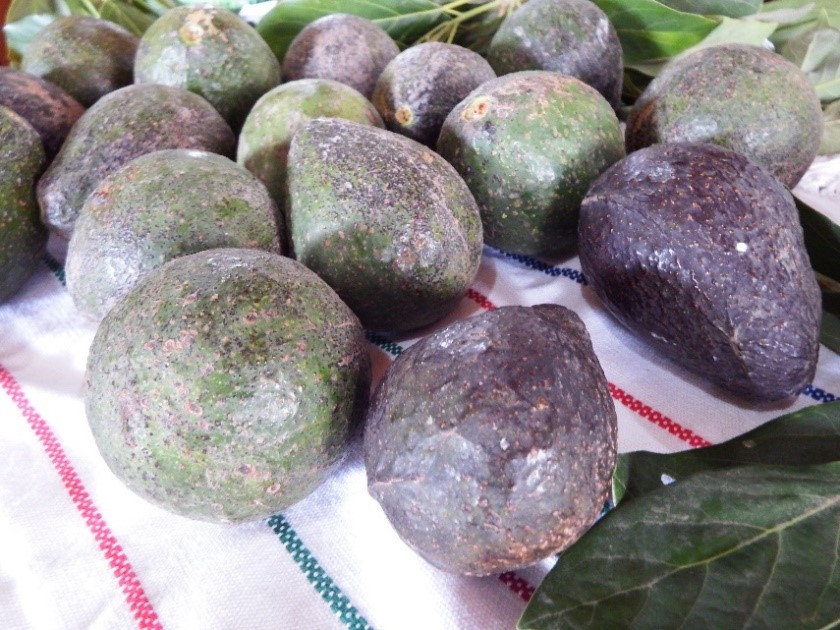
“At the start” says Sergio Coroxón, “I was a government extension agent and it was my work to communicate with smallholder producers. But after listening to their stories, I started to have doubts. Then CDAIS provided opportunities and gave confidence for me as well as for the whole community. So I asked myself, ‘I have land, why not become a grower too?’” Sergio then became an avocado producer, and got more involved, eventually being elected as president of the AIDA association. “It has been a long process, but it has had very positive results. Decision making is a complex task, made more complex when outcomes impact on a family’s nutritional security or economic future. But CDAIS have built capacities, and has taught us how to fish…”
Building trust – a catalyst for change
“The greatest achievement of the CDAIS initiative has been the consolidation of AIDA as a representative association of avocado producers from all around Lake Atitlán” says Sergio Coroxón. But this did not happen overnight. And it was only possible thanks to the many meetings that CDAIS facilitated since 2015. However, work began only in one community at first. Though news of early successes spread, and very quickly, interest was expressed by farmers from all around the lake. Further meetings were organized, and over a year, a new grouping emerged including farmers from eight municipalities. And this was also made possible through the analysis of capacity needs, followed by the joint development of a coaching plan, and implementation of the resulting action plan. As Sergio explained, “By using this process, CDAIS helped us developed a common approach.”
When the AIDA board of directors presented itself to its members, they compared what has been created to a child or an avocado tree, that is growing and beginning to flourish, and that they were now like a large family. “Producing avocados motivates us to work together and not in isolation. At the beginning the challenges were many, but we learnt, and today we are joined by our desire to continue creating even stronger alliances. We are now a group of more than 200 small farmers, but we are large in collective terms. And our aims should go beyond economic objectives, to creating jobs and opportunities, supporting youth, sports and art, and to create a better quality of life in general terms.”
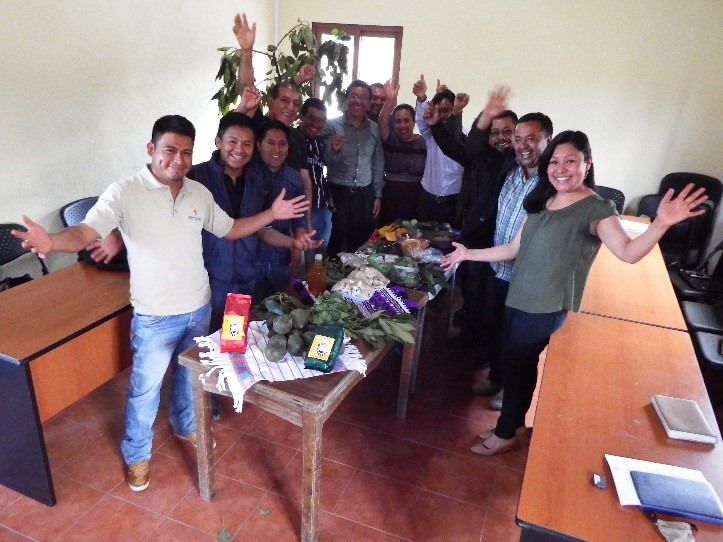
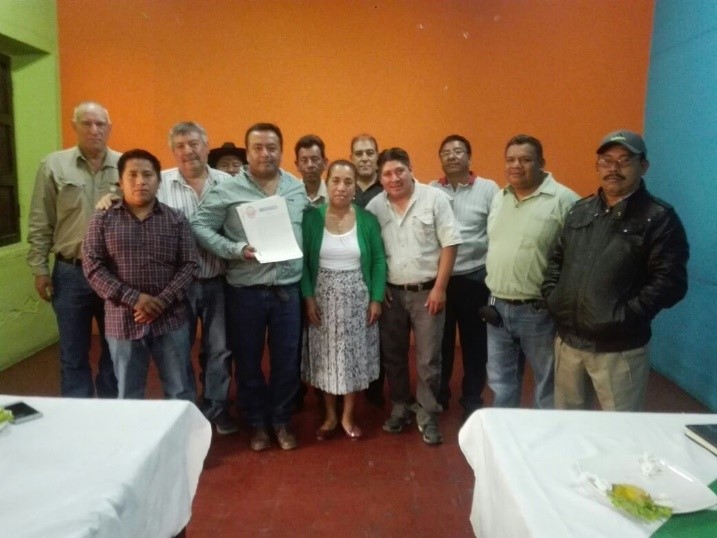
“CDAIS has united us and taught us how to work as a team. We stopped being spectators and now we feel that we are the main actors of what we do. Next, we want to create training spaces for more farmers, as CDAIS did with us.” Mario Chavez, ACDA, farmer and member of AIDA
Advancing quicker, together
Through CDAIS, Manolo Jeréz saw that association and collaboration between farmers is crucial for the development of communities. But he also learnt through training and the spaces CDAIS created about technical needs as well as organizational ones. He saw how organic management improves fruit quality, and quantity. This year, 90-95% of his fertilizer is organic and he is expecting a better harvest. In addition to learning almost everything necessary to grow avocado, Manolo now advises other small farmers who want to start avocado cultivation, offering advice on pruning, harvesting, planting and pest management.
The strategic alliance of avocado within the framework of CDAIS, follows up on the European Union funded Regional Program of Research and Innovation of Agricultural Value Chains (PRIICA project). This, included a range of innovation actions in the avocado chain that emphasized inter-institutional coordination and development of public-private partnerships. Other aspects developed by consortium members included implementing a technological innovation agenda, identifying and incorporating new supporting members, promoting colaboration among smallholder members, developing business plans, market studies and partnerships.
Amparo García is a leader in avocado cultivation in the area, and she adamantly believes that the participation and training of women is crucial, not only for the growth of farm businesses, but also because it promotes community development, generates employment, and has opened new opportunities for those who previously did not have any. “We changed the way we think – and so the way we farm also changed.” But in addition to avocados, farmers are also diversifying, and collectively marketing a range of other associated products, including honey, herbs, medicinal plants and mushrooms.
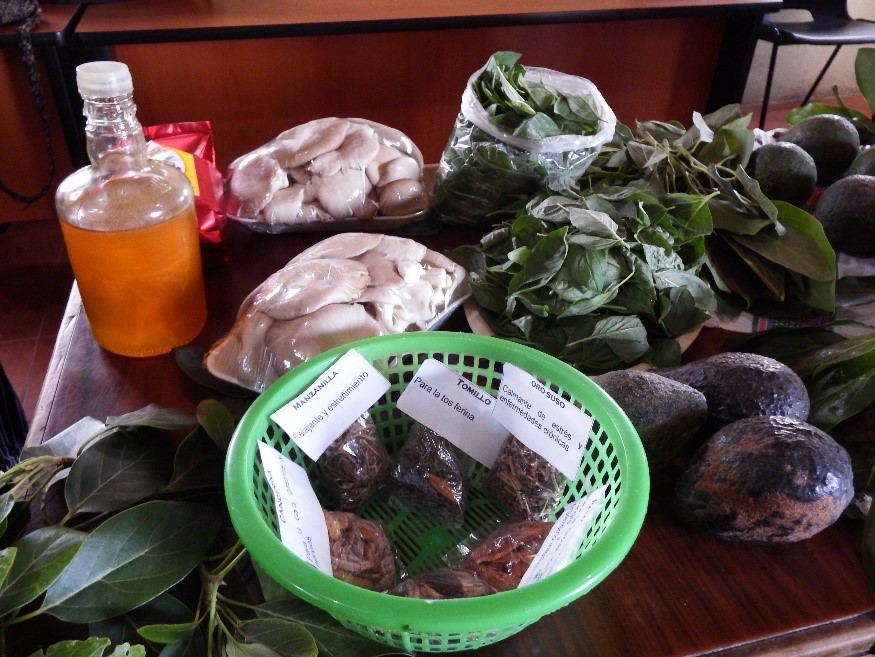
Moving forward, Manolo Jeréz sees improving the ability of all producers to better commercialize their products as a goal of AIDA, through working even closer together. And Don Andrés adds that seeking export markets will be key to further expansion, “And this is possible, as now we are joined, we are stronger.” Sergio Coroxón concludes by adding that “Now that our AIDA association is legally consolidated, we can also look at getting loans, and we want to build a central collection centre, also as a place that our smallholder members can gather and share ideas.”
“Thanks to this, the people involved live better today. Families have greater access to education and health services, and an improved quality of life.” Sergio Coroxón, president of the AIDA avocado growers association
